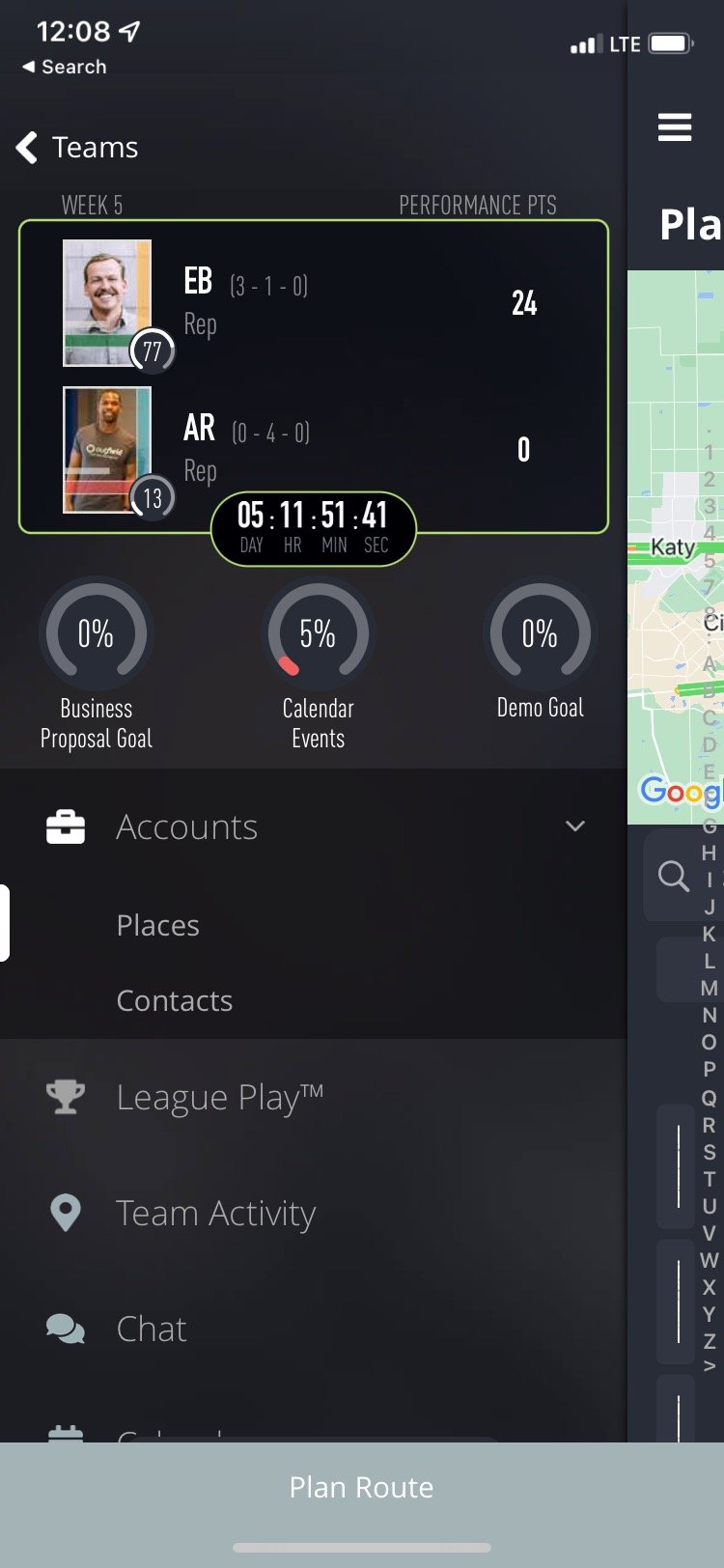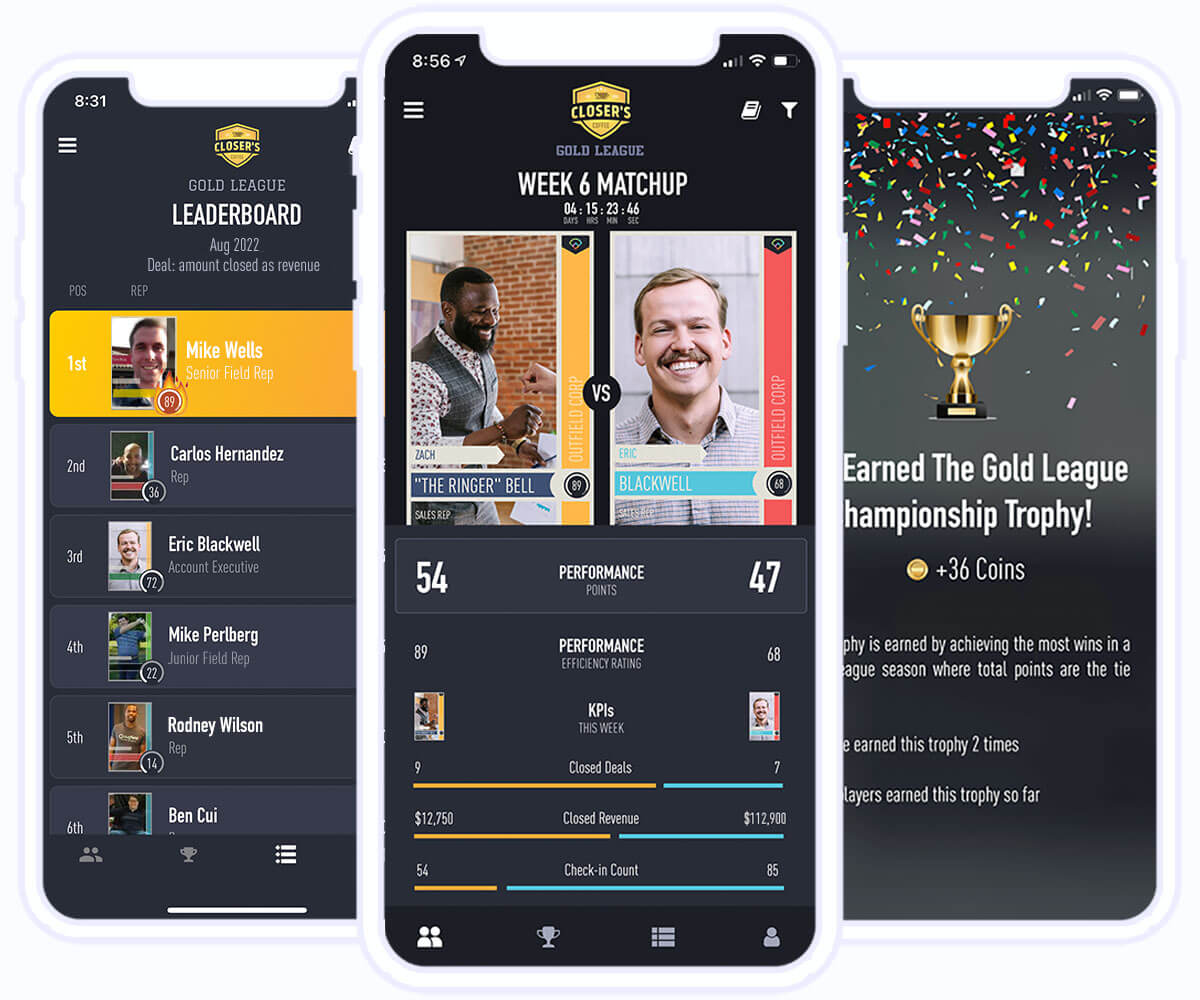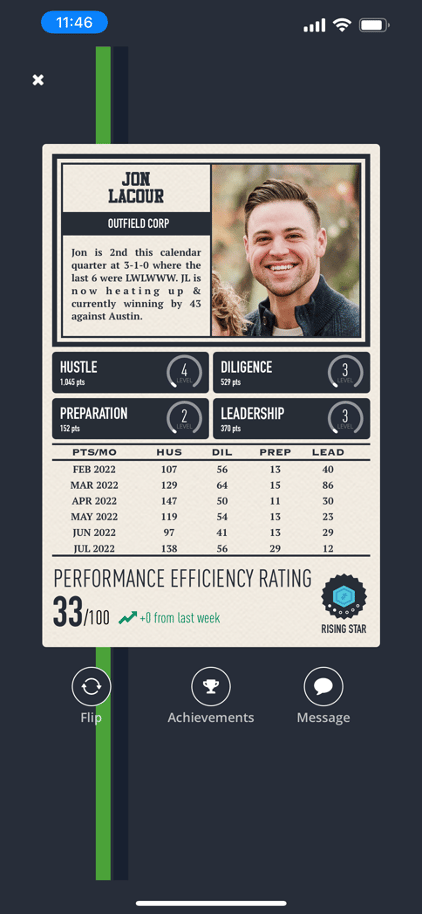6 Reasons Why Gaming CRMs Are The Best Option For Field Marketing Agencies
I’ve worked in field marketing for many years. My time working in the space, at various positions, for top companies like Beats By Dre (Apple), Whirlpool, and others have provided me a great amount of experience. In fact, that experience ultimately translated itself into the formation of Outfield. This app was originally designed to address the specific needs of field marketing agents who were responsible for driving brand affinity and sell-through at various retail outlets. While we designed really good tools to improve the operations of field marketing, there were some opportunities left on the table that we decided to pursue.
Now that we’ve evolved into one of the world’s leading Gaming CRMs, we are in a much better situation to address some of the unique opportunities that were once out of reach. This blog is meant to briefly cover some of those areas where field marketing apps have fallen short and how Gaming CRMs are innovating to address those gaps.
More specifically, we’ll dive into how Gaming CRMs can service the internal needs of field marketing agencies, while also expanding the agency’s value offering to their clients. Both are important to the sustainability of the agency.
For those who are familiar with the space, it comes at no surprise to say that an agency’s client drives the parameters for the partnership. After all, they are hiring the agency to be a solution to some business need. That being said, it is up to the agency to fulfill those needs. If they come up short, they risk losing the account to a competing agency. This means that agencies should always be on the lookout for incremental ways that they can extend value to their clients, and avoid being viewed as commodities. Here, I‘ll list several ways that Gaming CRMs can assist in that process.
For The Client
1. Having The Ability To Share Clearly The Performance Of Your Program
One great aspect to CRMs built primarily on gaming technology has to do with their inherit focus on performance. The many dashboard views, analytics, user attributes, etc. offered through these services are put to the forefront for all to view. The ability to clearly define and track company metrics along with individual performances is critically important. The investment companies are making to have this kind of knowledge base is significant. There’s no wonder why companies are willing to allocate large amounts of resources to business intelligence software like Power B.I. and Tableau.
Of course agencies should want to track the performance of their field marketing programs. What’s even more valuable is having the ease to share and discuss performance metrics with their clients on a regular basis. In this way, agencies are proving their value to clients who are often searching for new and legitimate reasons to continue writing checks.
2. Hold Reps Accountable To The KPIs Put In Place By You And Your Client
![]()
Vendors are typically responsible for certain metrics put in place collectively by company staff and their clients. When administered properly, those metrics are meant to disseminate down to the program executioners. Field marketers, for example, are responsible for a certain number of visits within their territory over a given period of time. Moreover, within those visits, they usually have KPIs they are required to meet. Examples include number of demo days, table display events, endcap compliance audit visits, etc.
In my experience a challenge that can often be found in these processes, however, lie in the improper dissemination of the individual rep’s goals. In a perfect world, field reps’ goals are to be clearly defined and linked in some way to the high level goals that management and the client have put in place. This isn’t always the case. In many instances, the metrics that the field marketing reps are accountable for get lost in translation, are unclear, or overlooked altogether.
Because the nature of Gaming CRMs is to quantify the attributes of the field reps as individuals, keeping them in sync with their weekly or monthly goals should be a much easier process. For instance with Outfield, reps' goals are built into their main view, which means they will be top of mind consistently.

3. Having The Ability To Report Back Star Reps Of The Program
 Gaming CRMs prioritize the quantification of the sales person. Performance based stats are paramount, as well as a distinguishing feature of this of the type of CRM. Salesperson attributes such as how hard they work, how organized they are, leadership qualities and more are accounted for and presented in a fashion that individualizes. Tools that come along with Gaming CRMs provide a platform for sales professionals to highlight their abilities, showcase their achievements, and by extension, serve as a way for reps to personally brand themselves for public consumption. Ultimately, the outcome is understanding the value that sales reps are bringing to their organizations.
Gaming CRMs prioritize the quantification of the sales person. Performance based stats are paramount, as well as a distinguishing feature of this of the type of CRM. Salesperson attributes such as how hard they work, how organized they are, leadership qualities and more are accounted for and presented in a fashion that individualizes. Tools that come along with Gaming CRMs provide a platform for sales professionals to highlight their abilities, showcase their achievements, and by extension, serve as a way for reps to personally brand themselves for public consumption. Ultimately, the outcome is understanding the value that sales reps are bringing to their organizations.
In my experience working with some of the biggest national field marketing agencies, acknowledgement of the star performers within their programs was often overlooked. Sure the vendor would sometimes provide to the client awesome photos of a table day that one of their reps executed, but often times this was to highlight the event. The person responsible for the event’s success usually took a back seat. I don’t believe this was necessarily the case due to some intent at anonymity on the part of the agency. My guess is that the data wasn’t isolated and presented in a fashion that was easily digestible.
With a Gaming CRM like Outfield, a rep’s performance and personal statistics are highlighted and put to the forefront, much similar to professional athletes. Very easily administrators will know who the star performers are, relative to the rest of the population. This platform makes it very easy to showcase star performers to the client. This ability serves two purposes. For starters, it’s speaks to the vendor’s hiring, coaching, and operational contribution. And secondly, the sales reps who are responsible for their positive contributions receive the proper recognition. Ultimately, this better positions the rep for future opportunities.
For the Agency
4. More Personal Investment From Reps
Research shows that Millennials and Gen-Z’ers are much more responsive to game mechanics being installed in day-to-day activities and sales execution strategies. This should come at no surprise, but what is surprising is the amount of companies who are not taking advantage of this mechanism of influence. Perhaps, organizations are intrenched in the old way of doing things and don't quite understand how to properly leverage game theory. But here’s the reality, creative destruction is real. Companies who are not forward thinking may quickly be left behind by its peers who are more futuristic. After all, who will be the dominant generation in the workforce in the next few years? Millennials. Work as we know it, will be different in the hands of the up and coming generations.
Gaming CRMs are unique in the sense that they provide a platform for reps to showcase and personally brand themselves. Therefore, they directly provide an incentive for reps to care about the goals that have been put forth for them. Having a stake in any business whether financial or reputational puts reps in a position that rewards investment for their hard work. This will extend itself to heightened performance and better utilization of systems that are tracking their activities – CRMs for example. Field Marketing agencies who are not leveraging the power of gamification are truly missing out on hidden opportunities.
5. Boosted Productivity Among Sales Reps
We have proof! In our white paper The Ultimate Guide to Gamifying Your Sales Team we interviewed a hundred sales managers around the nation, at varying sizes. We wanted to learn if companies were incorporating game mechanics into their sales execution strategy, how they were using them, and what the results were.
What came from our research was encouraging. Nearly 90% of the sales managers stated that when sales operations were gamified, revenue went up. Moreover, 95% stated that company culture was improved.
As mentioned above, the group of sales managers went on to state another interesting fact. There was a group that was more responsive to game mechanics relative to the mean. Millennials. This is a critical piece of knowledge, primarily because this generational group is getting ready to dominate the workforce population.
So the question agency managers have to ask themselves; what percentage of their field marketing teams are made up of Millennials? While our research confirms that there was an uptick in performance across various generational groups, sales orgs with a significant amount of Millennials should have extra motivation to adopt a Gamified CRM.
6. Having The Ability To Quantify Value Of Star Performers For Alternative Programs

Field marketing agencies who are looking to begin new programs are constantly on the lookout for the right talent to bring in. The hiring process can be simplified based on the native value offering of Gaming CRMs. Just like in professional sports where teams can make roster decisions based on player talent (evaluated via that player’s stats history), hiring managers will be able to cherry pick based on the statistics associated with employees from prior marketing programs, as well as those near their end.
Being able to properly quantify the value of an employee improves your ability to recruit and justify your spend on hires. More importantly, however, is the avoidance of wasting time and resources on rehiring low performing reps that will cause damage to your programs and company brand in the long run. In short, field marketing agencies can benefit from Gaming CRMs due to its ability to indicate value. Ultimately, with this data, programs can be expected to execute better over time.
The goal of field marketing agencies is to make their clients happy. Up and coming gamified CRMs will provide the tools and information to better prepare them for their clients’ demands. Additionally, with the ability to clearly define and share this data with their clients, field marketing vendors will set themselves apart from their competitors – the ones who are using traditional or antiquated tech.
Adopt a Gaming CRM and ride the wave that Millennials will be excited to bring to your sales organization.
Outfield is a performance based CRM company that specializes in leveraging game theory and behavioral psychology to drive CRM adoption, motivation, and overall productivity among sales organizations. With customers in over 50 countries, Outfield’s Gaming CRM helps teams work simpler, smarter, and more effectively. Becoming the world’s most highly adopted CRM is their mission, and their vision is to accomplish this by creating a platform that is aligned with the values of the up and coming generation of sales people.
Field MarketingImprove Field ManagementSales ReportsCRM Usage